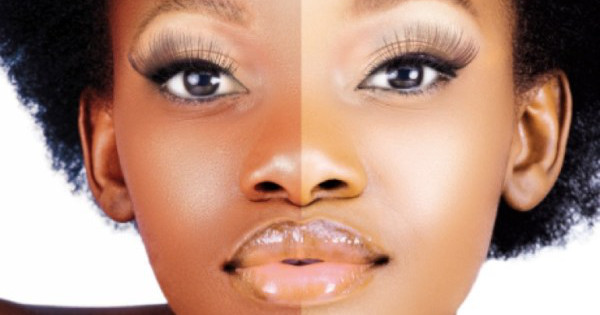Skin lightening creams with mercury. Hair relaxers with parabens and estrogenic chemicals. Douches and vaginal sprays with phthalates.
In the US, beauty products are largely unregulated. Everyone is at risk, but women of color face extra hazards from the products that are marketed to them. And these hazards pile on top of health disparities created by other systemic injustices.
The use of skin lightening creams and hair relaxers is a reaction to a standard of beauty that says that being beautiful means being white. This Eurocentric beauty standard can be seen in cultures around the world. It is rooted in racism, and it has been perpetuated by the beauty industry’s marketing. If people think they don’t look good as they are, the beauty industry gains.
Now, as the U.S. continues to come to terms with the white supremacism underlying many of our institutions, such as the criminal “justice” system, our organization continues to examine what anti-racist strategies we can engage in.
So we’re pleased to announce that our Mind the Store campaign is partnering with WE ACT for Environmental Justice’s Beauty Inside Out campaign to get toxic chemicals out of beauty products marketed to women of color. WE ACT is a long-time partner, and we’re very glad to work with them on this.
To start this partnership, we’d like to encourage you to read a recent post by WE ACT’s Leslie Martinez, “Embracing Beauty Inside Out: My Journey to Clean Beauty.”
As I sat in the beauty salon chair, flinching from the sensation of the heat over my edges, I repeated to myself, “beauty is pain and pain is beauty.” That was the affirmation of an 11-year old girl who believed that the process of altering herself to fit society’s Eurocentric standard of beauty was worth the pain. So, I hardened my head, closed my eyes, and continued to dilute myself in the name of beauty.
I sat through harsh chemicals and heating tools on the quest to encompass a beauty standard that never intended to include the diversity of the Black and Brown girl. These tools not only manipulated the texture of my hair, but my perception of myself and my roots as well. As a young girl, I believed that that experience was not only synonymous with beauty but also with culture. It was normalized. When something becomes so ingrained in your everyday life, it is almost impossible to analyze its impact. It did not matter what I applied on my hair as long as I got the results I wanted. How could something be harmful if it makes you feel beautiful?
Read the rest of Leslie’s post on the WE ACT for Environmental Justice blog.





